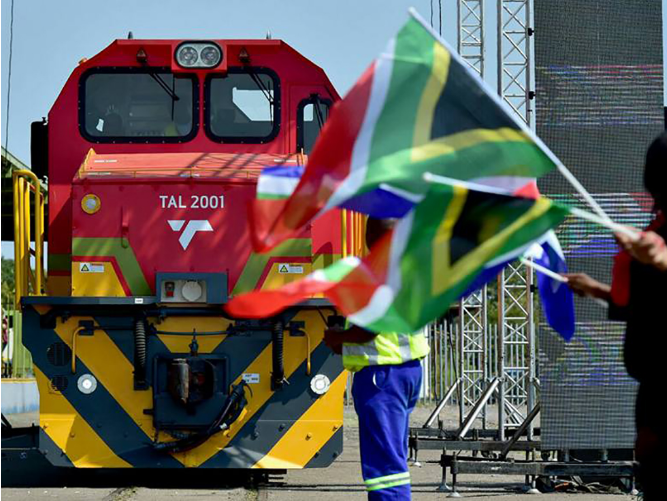
South Africa's government last week urged the private sector to take a bigger role in billions of dollars worth of planned public works and the opening of the country's energy sector, weeks after scaling back its own planned spending due to slumping oil prices.
The privatisation of the country’s ports, railways, roads and other transport infrastructure has proved a thorny issue in South Africa over many years. Attempts to encourage private sector operation have generally produced a great deal of opposition.
The government last year said it planned to raise 7.7 trillion pesos ($498.74 billion) in infrastructure investment through 2018, but in late January cut its 2015 budget by nearly 3 percent and shelved a tainted $3.75 billion high-speed train tender as part of its austerity measures.
In addition, its revenues have been affected by a three-year downturn in the price of the main dry bulk commodities it carries: coal and iron ore. Prices may have recovered somewhat but the outlook is still uncertain. Transnet is certainly one of the biggest
companies on the African continent, although it is difficult to make a precise comparison because it is entirely state owned.
It is important to remember that one of the country’s biggest port facilities is already privately owned. Richards Bay Coal Terminal (RBCT) is owned by some of South Africa’s biggest coal mining companies, with smaller stakes held by empowerment interests.
"We have a great opportunity, particularly in terms of the national
infrastructure program, for greater private sector investment and to use mechanisms like public-private partnerships," said Gama. He added "This is particularly evident in the energy sector," .
Private sector companies also provide a wide range of logistics services, with Grindrod, in particular, developing a network covering the whole country and beyond. Grindrod is also expanding its own coal terminal at Richards Bay. Transnet has been criticised in recent years for its high port charges in comparison with many other countries around the world. However, Gama says that his company merely prices according to market conditions, while many other ports benefit from government subsidies. Indeed, according to the World Bank Global Logistics Competitiveness Report, South Africa is regarded as more competitive than
China, India, Russia or Brazil.
Transnet has been criticised in recent years for its high port charges in comparison with many other countries around the world. However, Gama says that his company merely prices according to market conditions, while many other ports benefit from government subsidies. Indeed, according to the World Bank Global Logistics Competitiveness Report, South Africa is regarded as more competitive than China, India, Russia or Brazil.
Focus on Durban
By far the biggest planned Transnet project is the construction of a brand new container port on the site of the old Durban International Airport, about 25km south of Durban. However, given current financial constraints and lower than expected trade volumes, there is no fixed timetable for its development. At present, Transnet is focusing on improving its infrastructure elsewhere. The Work will begin this year on deepening three berths at Durban Container Terminal Pier 2 from 12.8 metres to 16.5 metres. This will allow access for the new generation of Super Post Panamax vessels at low tide as well as high tide.“The continued investment in infrastructure and modernisation of our flagship Port of Durban is pivotal in meeting the ever increasing demands of the maritime industry, in particular, the ever increasing size of container vessels pulling into our ports" said the CEO ot executive of TNPA.
Appointment system
The company is also seeking to improve the efficiency of its operations in ways that do not require capital outlay. For instance, at the start of April it introduced an appointment system for the delivery of containers at Durban's Pier 1.Haulage companies are required to book a slot for delivery in order to spread activity over the course of the week, avoid congestion and reduce allegations that drivers pay bribes to avoid the queues that build up at peak times. Transnet has set a goal of ensuring that all trucks are processed within 35 minutes.
Some freight forwarders oppose the policy, arguing that they cannot be so precise as they are subject to delays from their own customers. Transnet Port Terminals’ general manager for container operations in KwaZulu-Natal, Julani Dube, said: “We have done the necessary research and tracked all movements and transactions over the past year to know where the problems are and what is realistically achievable if we get the necessary buy-in from stakeholders to implement the container appointment system.”Last month, the central bank revised down its Mexican growth outlook for 2015 and 2016 as the crude slide dampened hopes for the energy reform, which had formed the centerpiece of the government's plans to revive the economy.


